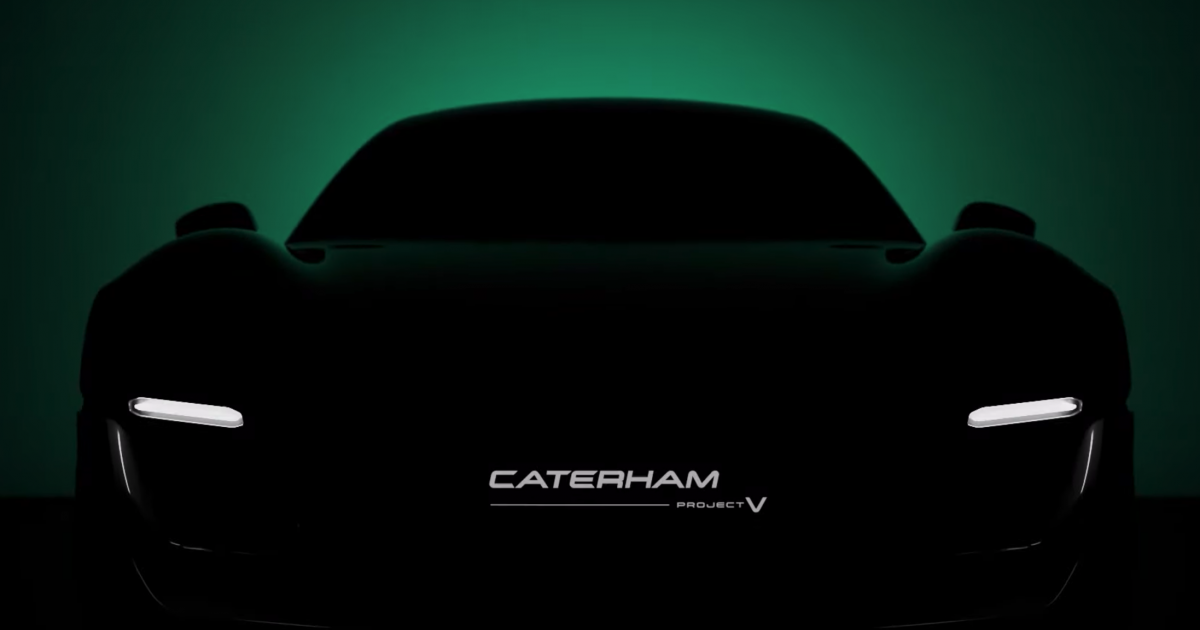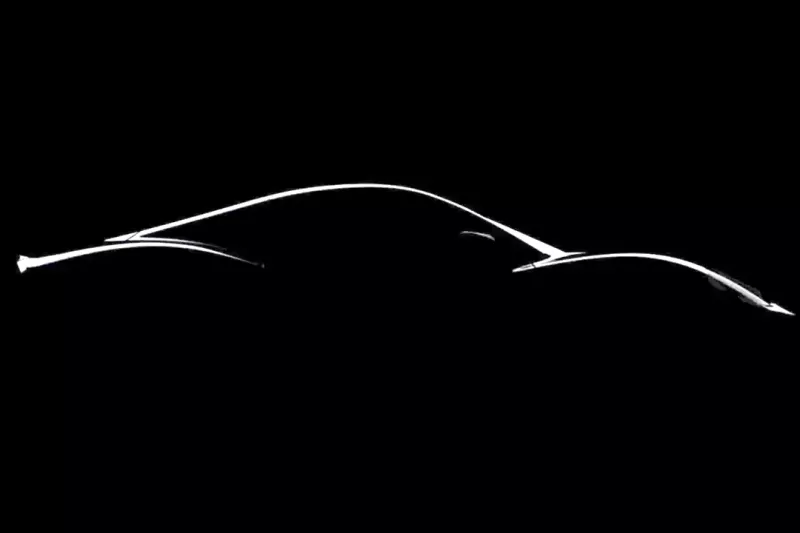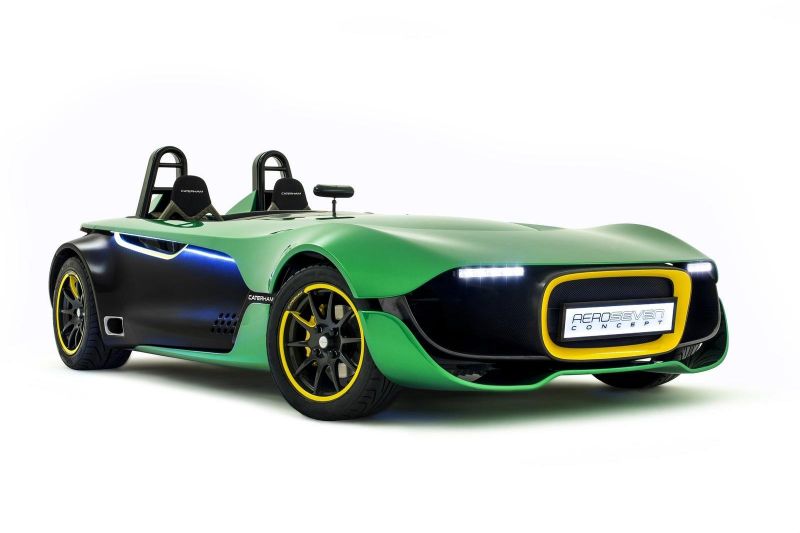Caterham is set to reveal its all-electric Project V show car on July 12, and in the lead-up the company has released another teaser.
Pitched as “driver-focused, lightweight and fun to drive”, the Caterham Project V is part of a completely new design language for the British sports carmaker. It’s a drastic departure from the open-top Seven that dates all the way back to 1957.
The Caterham Project V has been made in partnership with engineering and design firm Italdesign, with the show car be made at its headquarters in Turin, Italy.
This latest teaser shows of shadowy glimpses at the Project V’s front and rear. There are thin LED headlights, as well as large round tail lights.
Previous teasers revealed the car has a silhouette that calls classic Lola racers to mind. There are prominent fenders front and rear and a subtle rear spoiler.
At this stage Caterham hasn’t detailed the electric powertrain for the Project V, nor what its outputs will be.
“This is the essence of a sports car with an electric powertrain. This is a statement of intent. This is Project V,” the brand says.
If the Project V goes into production, it will sit alongside the EV Seven recently revealed by Caterham.
Despite the added weight of the battery pack, Caterham claims the EV Seven concept is less than 70kg heavier than the Seven 485 and weighs less than 700kg. It has a power-to-weight ratio of 245kW per tonne.
It’s powered by a bespoke version of Swindon Powertrain’s HPDE electric motor which produces 179kW of power and 250Nm of torque, which is roughly the same as the petrol-powered Seven 420.
Caterham estimates the EV Seven concept can do the 0-60mph (0-96 km/h) sprint in 4.0 seconds, and flat out you’ll be doing an estimated 209 km/h.
This electric motor is fed by a 51kWh immersion-cooled battery with a 40kWh usable capacity. It can be DC fast-charged at speeds of up to 152kW.
This isn’t the first time Caterham has looked to move away from the Seven as its only model.
In 2013 it revealed the Ford-powered AeroSeven Concept, with a view to putting it into production in 2014. Unfortunately the brand ran out of cash in 2014, and the project was shelved.
MORE: Iconic sports car brand Caterham is going electric



